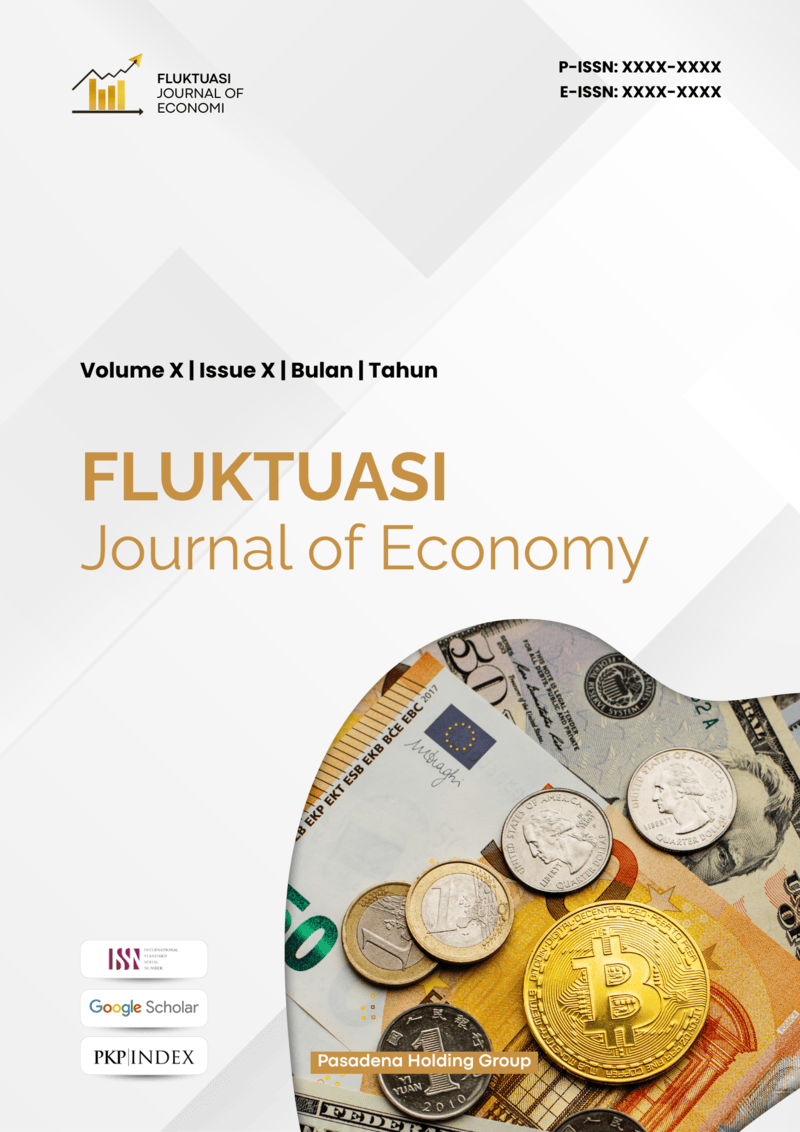HUBUNGAN INFLASI DAN PENGANGGURAN TERHADAP STABILITAS EKONOMI
Main Article Content
Abstract
Economic stability is a condition that reflects a balance between growth, employment opportunities, and price stability. One of the key factors determining the achievement of this stability is the level of inflation and unemployment. High inflation can reduce the purchasing power of society and increase production costs, while high unemployment can decrease household consumption, slow economic growth, and create social inequality. This article aims to provide an understanding of how inflation and unemployment are interrelated and how they affect a country's economic stability, while also emphasizing the need for balanced economic policies to control both variables. The method used is a literature review, collecting secondary data from various journals, reports, and related publications, which are then analyzed descriptively and comparatively to identify patterns of interrelation between variables. The study results indicate that inflation and unemployment have a complex and dynamic relationship. Uncontrolled inflation has the potential to increase unemployment, whereas high unemployment tends to suppress inflation through weakened consumption. These findings underscore that monetary and fiscal policies must be implemented in an integrated manner to maintain price stability while creating employment opportunities. Consequently, economic stability can be achieved sustainably and serve as an important foundation for growth and societal welfare.
Downloads
Article Details
Section

This work is licensed under a Creative Commons Attribution 4.0 International License.
References
Hutabalian, T. P., Ompusunggu, D. P., Sihombing, A., Purba, A., Simbolon, D.,
Siahaan, L., ... & Sibatuara, M. (2025). Pengaruh Inflasi Dan Tingkat
Pengangguran Terhadap Pertumbuhan Ekonomi Provinsi Kalimantan
Tengah. Jurnal Ilmiah Wahana Pendidikan, 11(8. C), 275-287.
Kalsum, U. (2017). Pengaruh pengangguran dan inflasi terhadap pertumbuhan
ekonomi di Sumatera Utara. Jurnal Ekonomikawan, 17(1), 163065.
Marunduri, G. A., Missa, A. N. S., Lumentut, E. M. O., & Silalahi, P. J. (2025).
PENGARUH INFLASI TERHADAP TINGKAT PENGANGGURAN
DI INDONESIA TAHUN 1986-2024. AT-TAKLIM: Jurnal Pendidikan
Multidisiplin, 2(6), 559-576.
Matondang, K., Togatorop, G. N., Silaban, D. Y., Sipayung, R. S., Girsang, R., &
Lubis, T. I. S. (2024). Harga Publik dan Stabilitas Ekonomi: Studi Literatur
atas Faktor-Faktor Penentu dan Tantangan. Innovative: Journal Of Social
Science Research, 4(6), 4249-4263.
Meiriza, M. S., Rahman, A., Lingga, D. A. S., Sembiring, E. A. B., Kaban, E. B.,
Hia, K., ... & Zuhra, N. (2024). Pengaruh Inflasi terhadap Tingkat
Pengangguran di Kota Medan Tahun 2019–2023. Jurnal Masharif Al-Syariah:
Jurnal Ekonomi dan Perbankan Syariah, 9(3).
Ronaldo, R. (2019). Pengaruh inflasi dan tingkat pengangguran terhadap
pertumbuhan ekonomi makro di Indonesia. Jurnal Ekonomi, 21(2), 137-153.
Seto, D. (2023). Analisis Pengaruh Inflasi terhadap Tingkat Pengangguran di
Negara Berkembang. literacy notes, 1(2).
Siregar, R. H., & Lubis, I. (2024). Analisis Regresi Pengaruh Inflasi, Suku Bunga
dan Pengangguran Terhadap Pertumbuhan Ekonomi Di Sumatera
Utara. Journal of Islamic Business Management Studies (JIBMS), 5(2), 29-40.
Sujatmiko, A. D., Setiawan, F. B., Alfina, N., Elyansyah, N. I. D. P., Rizky, P. A.,
& Asitah, N. (2025). Hubungan antara Pengaruh Inflasi terhadap
Pertumbuhan Ekonomi Indonesia: Kajian Literatur Sistematis. Nusantara
Entrepreneurship and Management Review, 3(1), 39-45.

